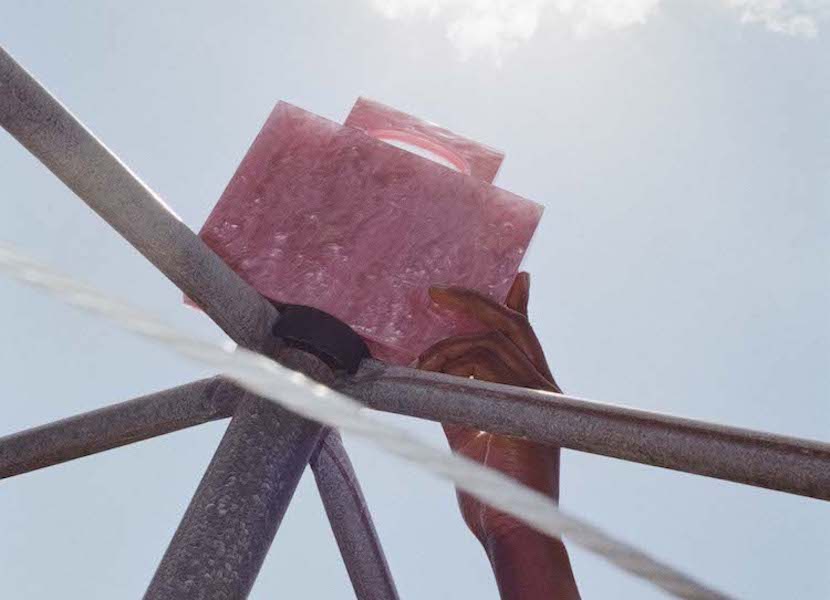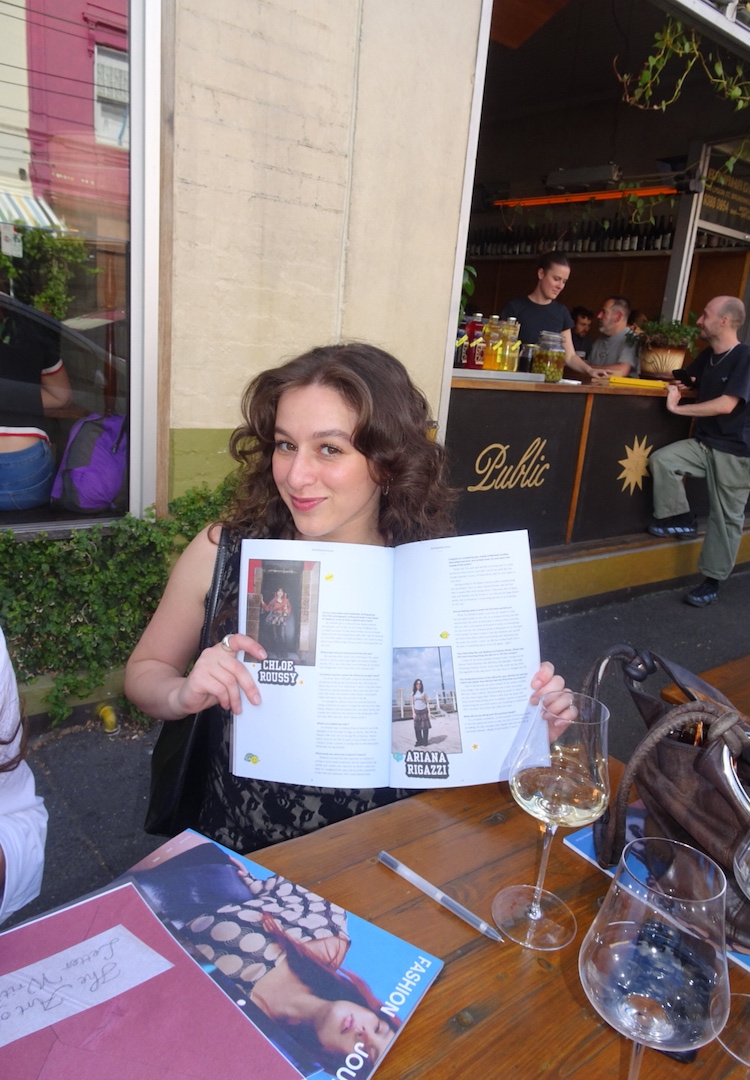How to tackle tax as a freelancer, according to 4 Australian creatives
Photography by Natasha Killeen
Words by Genevieve Phelan
The conversation absolutely none of us want to have, but we’re having it.
Freelancing comes with its perks, but there are two sides to every coin. Between spreadsheets, numbers, life admin, logistical planning, and income-tracking, it becomes a lot, fast. Soon enough, you have so many professional alter egos that the whole thing feels like a Little Britain skit.
Setting up an ABN and figuring out how to format your own invoice is where it all innocently begins. Next thing you know, you’re actually earning some considerable untaxed funds.
Looking for more career advice? Subscribe here and we’ll send it straight to your inbox each week.
It’s all prosecco bottles for the table and unsplit rideshare fees until you realise the whole freelancing thing is making your finances ultra messy.
You’re spending false money on a brekkie burrito instead of stashing it away for the Tax Man. And the whole be-your-own-boss bravado comes crumbling down as your mates revel in their meaty tax returns in July. How do you even find a good bookkeeper? Should you have one? How much do they cost? (This is usually where tax gets chucked in the ‘too hard’ basket).
Instead of succumbing to tax-anxiety, we’re going to be connoisseurs of coin organisation this year. How? I quizzed four thriving Australian creatives on how they avoid fucking up their finances as freelancers, and their advice is nothing short of gospel.
Alice Carrett, head of communications at Hatrik House and founder of Cool Guides
View this post on Instagram
When did you first realise you need to sort out your shit when it comes to finances and freelancing?
I have always had a few things going at the same time and when my freelancing on the side of my full-time job began to pick up, I realised I had no idea how best to work everything. I tried to read a lot of information and books on how to do it and eventually came to the realisation that I will never be an expert on this, so I should find one.
How do you do your tax (and who does it)?
The amazing Kirsty from Top Solutions is my bookkeeper. She looks after everything for me and connects me to the right people. I think, like most things, you need to recognise your strengths and weaknesses and if you need help, go get it! It’s always worth paying someone who knows what they are doing because your tax and finances aren’t something you can fuck up.
What’s the easiest way to keep track of your income and expenses throughout the tax year?
I have a very basic spreadsheet going where I can keep track of everything top level, and then I also use Xero to really have an understanding of where everything is sitting throughout the year.
Any other pro tips for new freelancers getting their financial admin into gear?
Be comfortable in asking for help. This isn’t something you learn in school and no one walks into the freelance or small business life having an extensive knowledge of accounting. I asked all my friends with small businesses, I asked my bookkeeper a million (very silly) questions as well as my accountant. Like all things you make mistakes, but you keep finding better processes and streamlining things.
Monique Barton, author, writer and photographer
View this post on Instagram
When did you first realise you need to sort out your shit when it comes to finances and freelancing?
When I realised I had not been keeping track of my time when working on certain projects/deadlines and thus didn’t know how to invoice correctly. Alas, I found the Toggl desktop app that allows you to time each task. So when it comes to invoicing, you know what date and time you completed each task.
How do you do your tax (and who does it)?
An accountant. I have never been able to understand that world, and frankly, words are my jam… not numbers. Having professionals handle stuff like that can be really good for advice and further learnings. However, if I had the capacity and patience, I’d for sure do it myself.
What’s the easiest way to keep track of your income and expenses throughout the tax year?
Excel spreadsheet! Call me old fashioned, but my goodness has that helped me stay on track of all my outgoings and budgets.
Any other pro tips for new freelancers getting their financial admin into gear?
Figure out your rate and don’t undersell yourself. To do this, come up with your first figure (a few google searches will help) then figure out how much the tax deduction percentage is for that bracket, and also the super. Add your tax and your super on top of your original rate figure and voila, you’ve got a ballpark figure to work from. When I started freelancing I forgot to add my super and tax on top of my rate and ended up earning peanuts. Oops! Oh, also, create a budget and incomings/outgoings formula. Life saver.
Ben Jones, photographer and founder of Northbrook Agency
View this post on Instagram
When did you first realise you need to sort out your shit when it comes to finances and freelancing?
Much to the pleasure of my dad (an avid receipt keeper and tax mentor), I started getting my shit together once I discovered the beautiful world of tax deductions. There are few sweeter feelings than pulling years’ worth of parking receipts out of my (somewhat disorganised) glovebox and calculating the deductions. Let it also be noted, I never thought I would admit that publicly.
Photography (in my opinion) is a fake it till you make it occupation – a sure-fire way to break the no-job, no-experience loop. For me, setting myself up with an ABN, letterhead, and growing a beard to make myself look older helped me land larger clients and gain exposure to more challenging jobs.
How do you do your tax (and who does it)?
My aforementioned father has been very gracious with his tax teachings, but I currently do my own tax. There are, however, tax agents that work exclusively with creatives. Simply hand over your bank statements and let them work their magic (for a fee).
What’s the easiest way to keep track of your income and expenses throughout the tax year?
You’ll never regret investing in an online accounting software. I personally use Zoho Invoice, but Xero (while more expensive) is a great option. I also love handballing the task of following up invoices to my accounting software – the classic, “This is an automated message, please pay me my money now”.
Getting a business account and card is also a nifty way to keep all deductible or business related income and expenditure in one place. Paying yourself a consistent wage also has its personal financial benefits, but that’s a whole other can of worms.
Any other pro tips for new freelancers getting their financial admin into gear?
Work out what’s deductible and get claiming. Keep your receipts. Syphon off tax-payable from your chequing account; it may be in your account, but unfortunately it doesn’t mean it’s yours. Keep your receipts.
Alyce Greer, founder of Bossy Copywriting
View this post on Instagram
When did you first realise you need to sort out your shit when it comes to finances and freelancing?
Like most creatives, I’m notoriously shit with money. So in the early days I committed to, at the very minimum, putting aside my tax and super. It was hard, because obviously I wanted to keep every penny for myself, but I knew it was important for avoiding an enormous bill at the end of the year, and knowing how much was actually ‘mine’. As soon as I received a payment, I removed the tax and invoice and told myself it wasn’t mine, so MITTS OFF. I also tracked my invoices in a spreadsheet as, in addition to being notoriously shit with finances, I’m also notoriously forgetful (a wonderful combination of traits when running a business). I knew if I didn’t track this, I would forget to ask people for my money. You’ve gotta be on your game here because surprisingly, clients won’t bang down your door to pay you.
Over time, I’ve slowly improved my money management – opening multiple bank accounts, registering for GST, investing in accounting software and hiring an accountant. It was a couple of years before I officially made the change from sole trader to company. This means I’m technically an employee of… myself.
How do you do your tax (and who does it)?
I still immediately transfer my tax and GST from every invoice into a separate savings bank account and never touch it. I complete a BAS every quarter (when I say “I”, I mean my accountant) which leaves me with a nice tax and GST bill. But because I’ve been good, it comes directly from the savings account and doesn’t feel as bad. I also do my tax at the end of the financial year, like everyone else.
What’s the easiest way to keep track of your income and expenses throughout the tax year?
I still have my original spreadsheet, where I track all of my invoices. As soon as I book a job, I pop it in the spreadsheet and record the client details, amounts, date the money was received, etc. This means when I reach the end of the month, I can just reference the spreadsheet to make sure nothing slips through the cracks. I also find accounting software really helpful (I use Quickbooks). They’re much more fun to use than a spreadsheet, and it kinda feels like a game. I send my invoices through Quickbooks, which tracks my income, and I have connected my bank account so I can reconcile my expenses.
If you’re a visual person like me, having multiple bank accounts is the way to go. At the very least, get yourself an everyday account where money comes in, and a separate savings account where you store your tax and GST amounts. After learning about the Profit First model, I recently opened a bunch more accounts so I can divvy up money and visually see how much cash I have in each kitty, e.g. profit, marketing, wages, super etc. It means you consciously add money into your profit account, and live off the rest, rather than the other way around.
Any other pro tips for new freelancers getting their financial admin into gear?
I listen to loads of podcasts — there are some amazing ones out there to help creative freelancers. Also, if you’re not at the point of hiring a traditional accountant, a freelance accountant, virtual CFO or something similar might be helpful. There’s loads of businesses popping up that are run by millennials, for millennials, offering templates, workshops and freelance help managing money. If you’re interested in learning the ins and outs, maybe a course or workshop is for you.
For more advice for managing your tax as a freelancer, head here.













